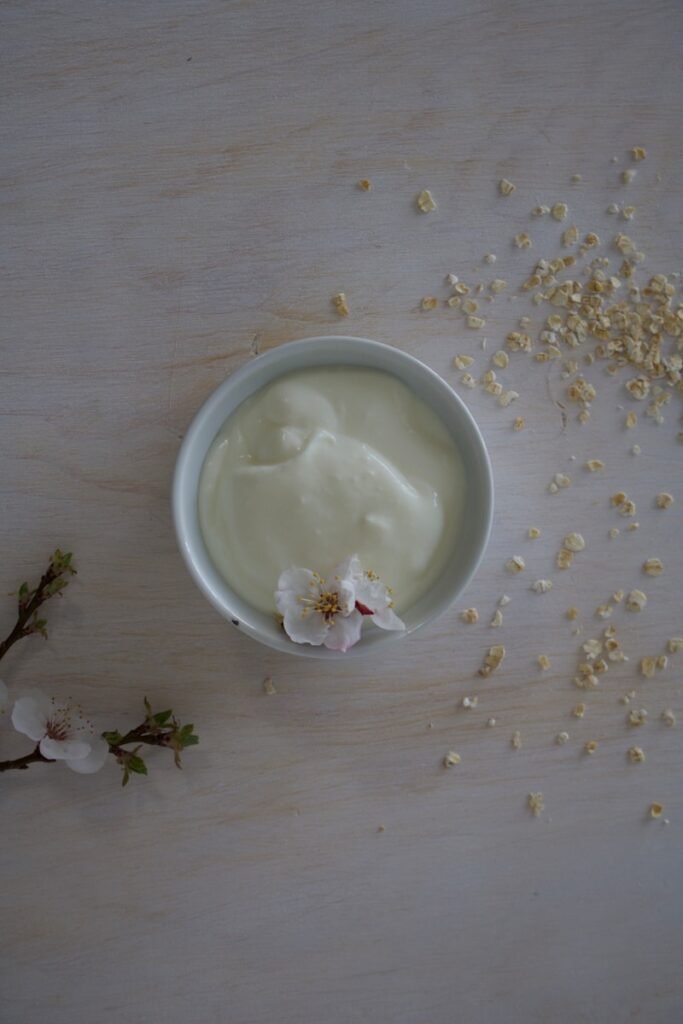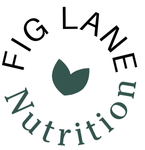By Parker Lane / October 18, 2024
What’s the deal? At Least There’s a Plant Based Option
As the plant based options are growing for dairy substitutes, there have been some products putting up a fair fight in taste and texture comparison to their animal based counterparts.

However, the nutritional comparison does not always meet the mark. Especially when it comes to items such as plant based yogurts.
When switching to a plant based diet, often the first big question is: “where is the protein coming from now?” Because meat, fish, eggs, dairy (including yogurt), all offer a substantial amount of animal based protein. So, with reduced consumption of animal products that protein has to come from other sources.
Unfortunately, some plant based yogurt alternatives on the market fall short with 0 g of protein per serving. For reference, unflavored, fat-free dairy containing yogurts have around 8 g of protein, and Greek yogurts have a whopping 16-18 g of protein for ¾ of a cup.
Fortunately, there are some high protein plant based yogurts to choose from.
The following high protein plant based yogurts have been taste tested by a registered dietitian. They were also reviewed for their protein content with consideration of other nutrition values.
This is an unpaid review of these products, and there is no partnership with these brands at the time of posting. I aim to provide honest and unbiased opinions to help you make informed choices.
3 High Protein Plant Based Yogurts
![3 Hight Protein Plant Based Yogurts [Dietitian Tested]- with a bowl of yogurt in the background with a spoon.](https://figlanenutrition.com/wp-content/uploads/2024/10/Cover-image-blog-post-4-1.png)
Kite Hill makes a range of dairy-free alternatives from cheeses to filled pastas all starting with an almond milk base.
Nutrition facts: Serving ⅔ cup has 140 calories, 6 g fat, 0.5 g saturated fat, 4 g carbohydrates, 1 g fiber, 0 g sugar, 17 g protein
Notable micronutrients: 3 mg Iron
Ingredients: Almond Milk (Water, Almonds), Soy Protein Isolate, Tapioca Starch, Natural Flavors, Live Active Cultures.
Remarks: To Kite Hill almond milk based yogurt, soy protein isolate is added giving its higher protein content. With 17 grams of protein for ⅔ of a cup they offer the highest protein content on this list. Unfortunately, they do not fortify with calcium or vitamin D but do offer 3 milligrams of iron.
Popular for their almond and soy milk, Silk has started to bring three different types of yogurts to the table. An almond milk base, soy milk based, and a Greek style with a coconut milk base.
Bellow are the nutrition facts for the Soymilk based dairy-free yogurt alternative.
Nutrition Facts: Serving ¾ cup has 110 calories, 4 g fat, 0.5 g saturated fat, 10 g carbohydrates, 2 g fiber, 5 g sugar, 7 g of protein*
Notable micronutrients: 260 mg calcium* and 2.2 mcg vitamin D.
Ingredients: Soymilk (Filtered Water, Soybeans), Cane Sugar, Corn Starch, Tricalcium Phosphate, Pectin, Natural Flavor, Dipotassium Phosphate, Sea Salt, Citric Acid, Live And Active Cultures, Mixed Tocopherols And Vitamin C Ester (to protect freshness), Vitamin D2.
Remarks: Silk does have lower protein than the other high protein plant based yogurts on this list. However, this soy milk based yogurt is a good source of calcium* and offers some vitamin D. Silk does make a Greek style plant based yogurt that has 10 grams of protein. Unfortunately, it has 10-11 grams of saturated fat, is only available sweetened and flavored, and has lower quantities of calcium.
*lower content in sweetened varieties.
Siggi’s, a skyr (thicker and creamier yogurt type product) based brand, that makes yogurts with more protein than sugar. They are now offering flavored, plant-based yogurt options. In addition to holding true with more protein than sugar in their original products, they do the same in their plant based product line as well.
Nutrition Facts (Vanilla & Cinnamon): Serving ¾ cup has 190 calories, 11 g fat, 7 g saturated fat, 12 g carbohydrates, <1 g fiber, 9 g sugar, 10 g of protein
Notable micronutrients: 1.5 mg iron
Ingredients: Cultured Coconut Milk (Water, Coconut Cream), Pea Protein, Cane Sugar, Coconut Oil, Macadamia Nut Butter, Tapioca Flour, Natural Vanilla Flavor, Fruit Pectin, Natural Flavor, Vanilla Bean Specks.
Remarks: This plant based yogurt is coconut milk based and has added pea protein to boost its protein content. Although higher in protein than other plant based yogurts, it does contain 8 grams of saturated fat. Additionally, it is not considered a good source for calcium.
Where do you use High-Protein Plant Based Yogurts?
Use high protein plant based yogurts almost everywhere you would use regular yogurt.

Breakfast: Fruit parfaits, smoothies, or overnight oats
Snacks: fruits with yogurts or made as a tzatziki for dipping
Savory (use unsweetened unflavored yogurt): savory yogurt bowl topped with roasted chickpeas (which also offer protein and are a great source of fiber), fish or eggs, dips, and sauces
Its main limitation when tested was in straining to make a labneh, a strained soft cheese from yogurt.
Takeaways & Final Thoughts
Yogurt can be a great source of protein. Unfortunately, not all plant based alternatives offer equivalent quantities of protein. However, there are three brands on the market, noted above, offering products that meet or exceed the protein content of plain fat-free yogurt**. The culinary application of these products are almost equivalent to those of regular yogurt. However, aside from protein content, they are low in other nutrients normally found in dairy. Calcium and added vitamin D are two that some normally look to get from yogurt. So, if this is you, ensure you seek out other sources of these nutrients.
**This is for the products listed above at the time of the review and may vary by products and flavor.

Pingback: Top 9 Plant Based Calcium Sources - Fig Lane Nutrition
Pingback: Top 13 High-Calorie Plant-Based Foods - Fig Lane Nutrition
Pingback: 13 Sources of Vitamin B12 for Plant-based Vegans - Fig Lane Nutrition
Pingback: Top 9 Low-Sugar Plant-Based Milk Alternatives - Fig Lane Nutrition
Pingback: Convenient Plant-Based Travel Food [Dietitian Approved] - Fig Lane Nutrition
Pingback: Plant-based Smoothie Recipe Guide - Fig Lane Nutrition
Pingback: 5 Foods to Add to the Blender for a Gut Health Smoothies - Fig Lane Nutrition